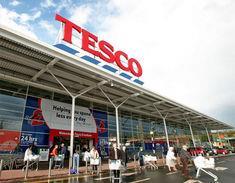
Tesco and Morrisons share of the grocery market has decreased, according to new data from Kantar Worldpanel.
The grocery share figures, accounting for the 12 weeks ending June 10, saw Tesco grow sales by only 1.8 per cent as its share dipped from 31.4 per cent to 31 per cent in comparison to the same period last year.
And sales were also lower at Morrisons, as the Bradford-based retailer saw its share slip from 12.2 per cent to 11.8 per cent.
Edward Garner, director at Kantar Worldpanel, believes Tesco and Morrisons both failed to match Asda and Sainsbury’s aggressive advertising campaigns.
He said: “What both outlets have in common is strong price messages - Asda with its Price Guarantee and Sainsbury’s with its Brand Match - Tesco and Morrisons are not protecting customer purchases in the same way.
"Morrisons is also behind in terms of convenience stores - I believe it only has five across the country. It has also lost out by failing to initiate an online shopping option with online sales continuing to grow year-on-year for retailers.”
Meanwhile, Sainsbury’s and Asda were the main beneficiaries of the Jubilee's £213 million boost to overall supermarket sales.
Sainsbury’s and Asda grew Jubilee sales slightly ahead the rest of the market, up 4.2 per cent and 3.5 per cent respectively, as Sainsbury’s grew its market share to 16.6 per cent.
The data shows overall supermarket sales increased by 11.3 per cent during the week of May 28-June 3, in comparison with the same period in 2011, as the nation's Diamond Jubilee celebrations gathered pace.
The 12-week period also saw both Lidl and Aldi achieve record market shares, each hitting 2.8 per cent.
Garner explained: “The recession has seen more and more customers shop for bargains, which has led to heightened success for the likes of Aldi. There are a large proportion of customers who combine their weekly shops at the big four with one of the smaller chains; we’ve seen customers who shop with both Aldi and Asda rise considerably.”
Iceland has also seen success with sales hitting 6.3 per cent over the same three-month period, nearly doubling the market average of 3.2 per cent. Garner believes an increase in frozen-food sales has been a deciding factor.
He said: “Iceland’s success is largely a result of the buoyant frozen-food market, which tends to do well during times of economic uncertainty, and is currently the fastest-growing grocery sector.
It has a value-for-money image and is seen as having little wastage, unlike fresh produce which requires much more care."



